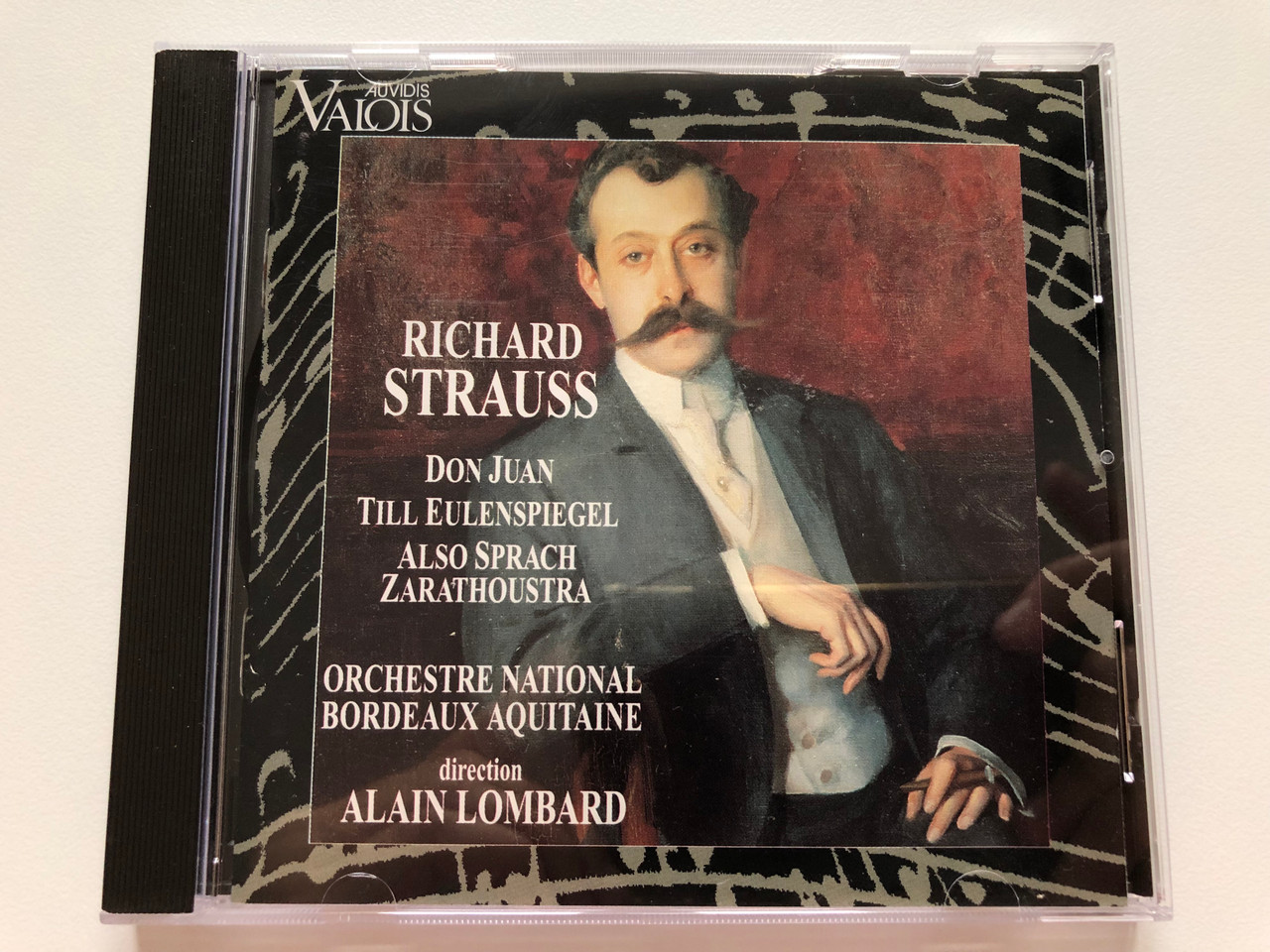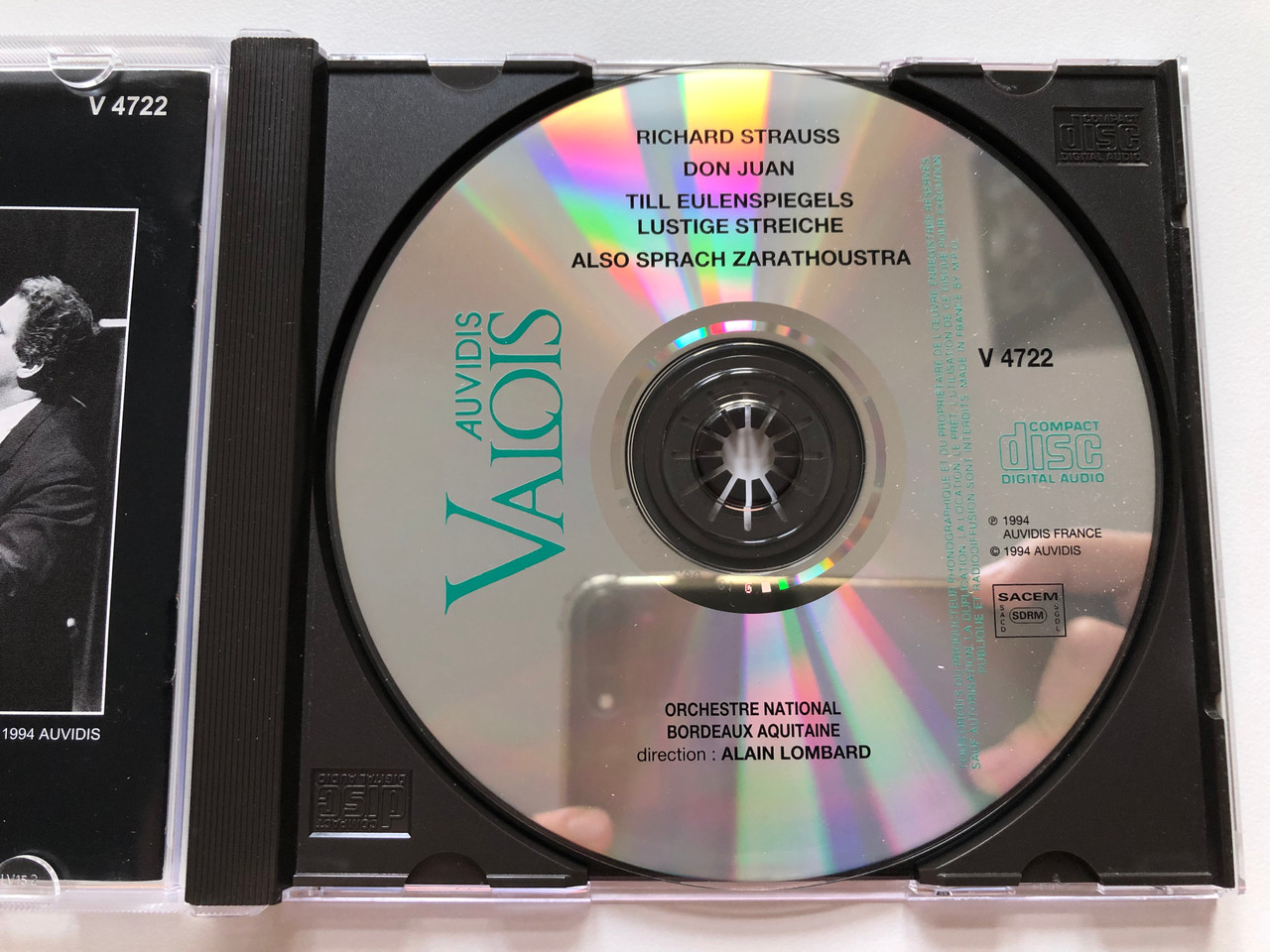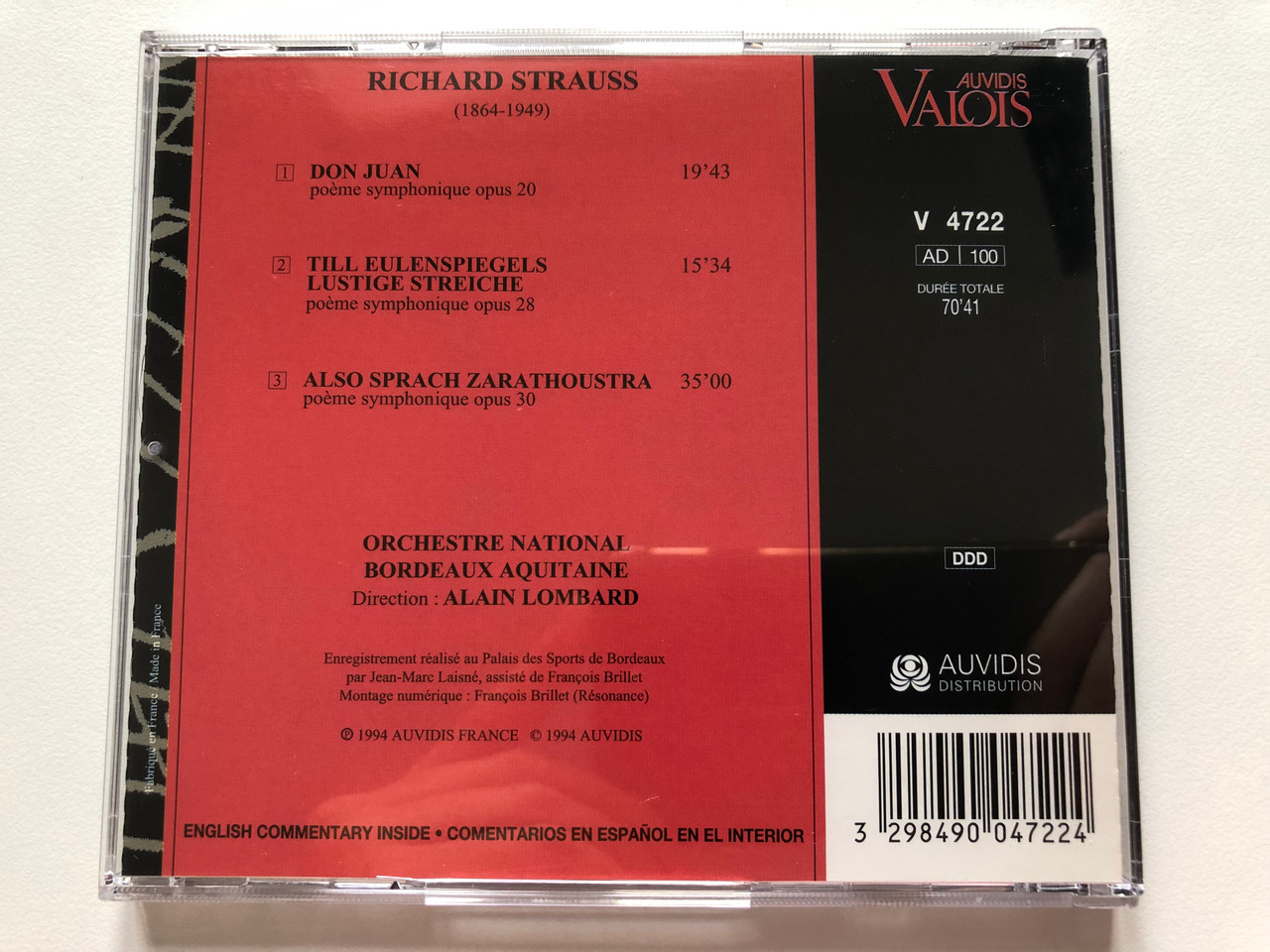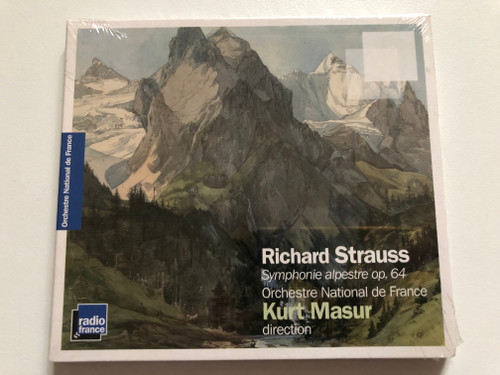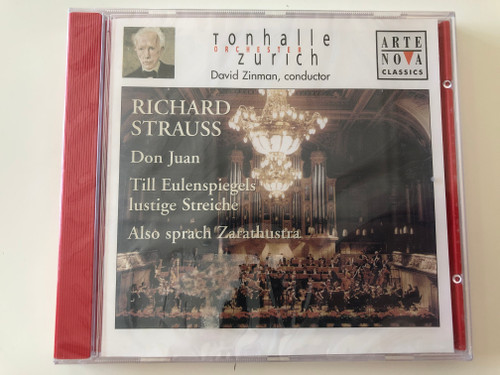Product Overview
Richard Strauss - Don Juan, Till Eulenspiegel, Also Spracht Zarathoustra / Orchestre National Bordeaux Aquitaine, Direction Alain Lombard / Auvidis-Valois Audio CD 1994 / V 4722
UPC 3298490047224
Don Juan, Op. 20, is a tone poem in E major for large orchestra written by the German composer Richard Strauss in 1888. The work is based on Don Juans Ende, a play derived from an unfinished 1844 retelling of the tale by poet Nikolaus Lenau after the Don Juan legend which originated in Renaissance-era Spain. Strauss reprinted three excerpts from the play in his score. In Lenau's rendering, Don Juan's promiscuity springs from his determination to find the ideal woman. Despairing of ever finding her, he ultimately surrenders to melancholy and wills his own death. It is singled out by Carl Dahlhaus as a "musical symbol of fin-de-siècle modernism", particularly for the "breakaway mood" of its opening bars.
The premiere of Don Juan took place on 11 November 1889 in Weimar, where Strauss, then twenty-five, served as Court Kapellmeister; he conducted the orchestra of the Weimar Opera. The work, composed when Strauss was only twenty-four years old, became an international success and established his reputation as an important exponent of modernism. Strauss often conducted the work in concerts during his long career, and the piece was part of the first recordings that he made in 1917. The last time he conducted the work was in 1947 with the BBC Symphony Orchestra during his last tour outside of Germany.
Although Don Juan was an undeniable triumph for Strauss, the work was not without its critics. Cosima Wagner, who was normally a supporter of Strauss and his music, despised the work because of its subject matter which did not rise to the metaphysical ideals of Wagner. The New Grove Dictionary of Music and Musicians states that "The aesthetics of Wagner and Liszt may have inspired him to embrace the extra-musical, but he refused to carry their torch for music as a sacred entity; the libertine Don (and Strauss with him) simply thumbs his nose at the world."
Performances of the work last around eighteen minutes. Excerpts from Don Juan are staples of professional orchestral auditions due to the numerous technical and musical demands on each instrument.
Till Eulenspiegel (German pronunciation: [tɪl ˈʔɔʏlənˌʃpiːɡəl]; Low German: Dyl Ulenspegel [dɪl ˈʔuːlnˌspeɪɡl̩]) is the protagonist of a German chapbook published in 1515 (a first edition of ca. 1510/12 is preserved fragmentarily) with a possible background in earlier Middle Low German folklore.
Eulenspiegel is a native of the Duchy of Brunswick-Lüneburg whose picaresque career takes him to many places throughout the Holy Roman Empire. He plays practical jokes on his contemporaries, at every turn exposing vices. His life is set in the first half of the 14th century, and the final chapters of the chapbook describe his death from the plague of 1350.
Eulenspiegel's surname translates to "owl-mirror"; and the frontispiece of the 1515 chapbook, as well as his alleged tombstone in Mölln, Schleswig-Holstein, render it as a rebus comprising an owl and a hand mirror. It has been suggested that the name is in fact a pun on a Low German phrase that translates as "wipe-arse".
Modern retellings of the Eulenspiegel story have been published since the latter 19th century. The Legend of Thyl Ulenspiegel and Lamme Goedzak, by Charles De Coster (1867), transfers the character to the period of the Reformation and the Dutch Revolt; the novel's Ulenspiegel (in modern Dutch, Tijl Uilenspiegel) was adopted as a symbol by the Flemish Movement.
Also sprach Zarathustra, Op. 30 (German: [ˈalzo ʃpʁaːx t͡saʁaˈtʊstʁa], Thus Spoke Zarathustra or Thus Spake Zarathustra) is a tone poem by Richard Strauss, composed in 1896 and inspired by Friedrich Nietzsche's philosophical 1883–1885 novel Thus Spoke Zarathustra. The composer conducted its first performance on 27 November 1896 in Frankfurt. A typical performance lasts half an hour.
The initial fanfare – titled "Sunrise" in the composer's programme notes – became well known after its use in Stanley Kubrick's 1968 film 2001: A Space Odyssey.
| Label: | Auvidis-Valois – V 4722 |
|---|---|
| Format: |
CD, Album
|
| Country: | France |
| Released: | 1994 |
| Genre: | Classical |
| Style: | Modern |
Tracklist:
| 1 | Don Juan | 19:43 | |
| 2 | Till Eulenspiegel | 15:34 | |
| 3 |
Also Spracht Zarathoustra |
35:00 |
- Composed By – Richard Strauss
- Directed By – Alain Lombard
- Orchestra – Orchestre National Bordeaux Aquitaine
- Recorded By – Jean-Marc Laisné
- Recorded By [Assistant] – François Brillet







